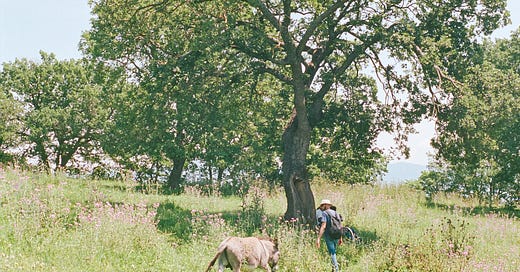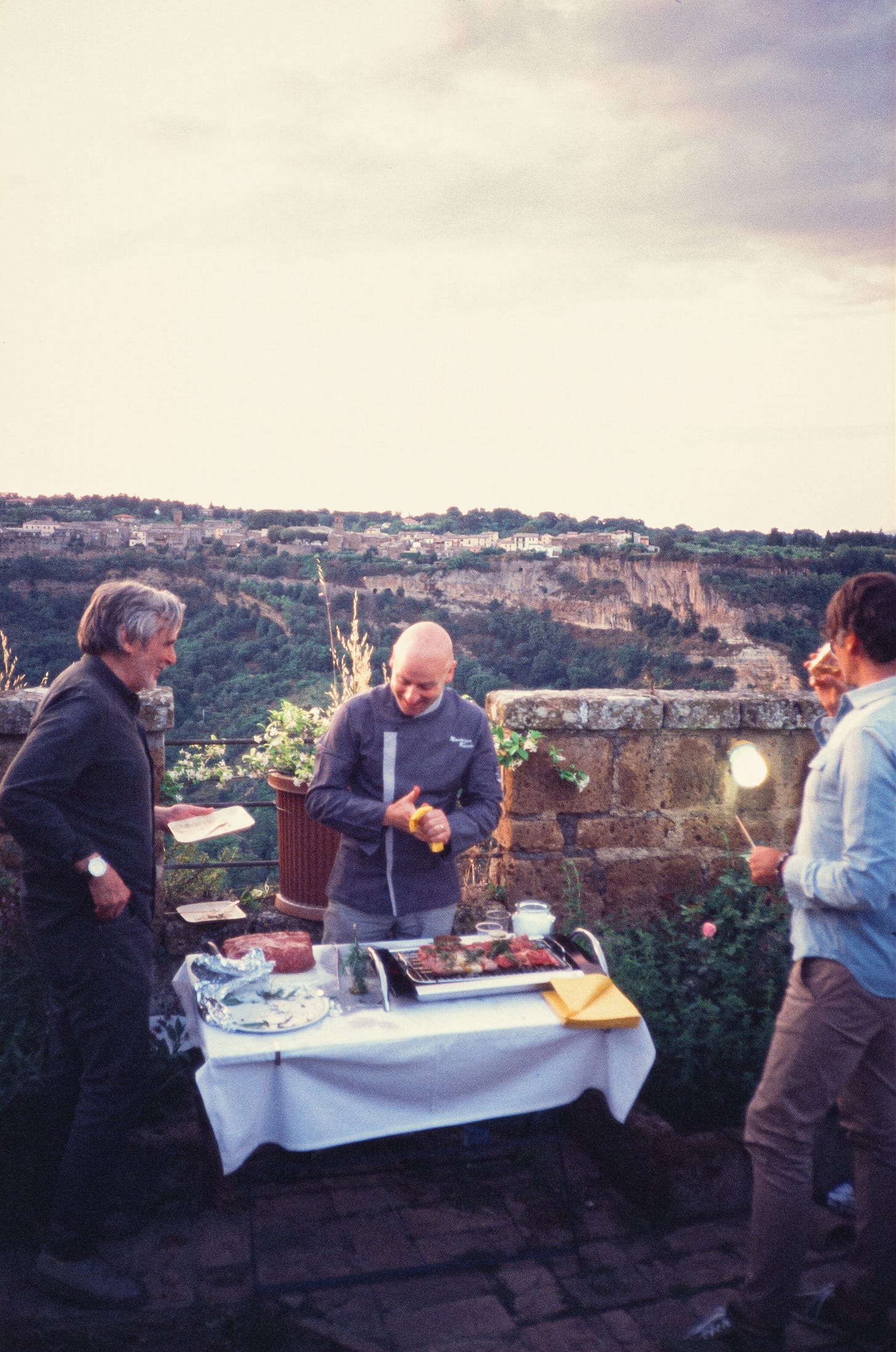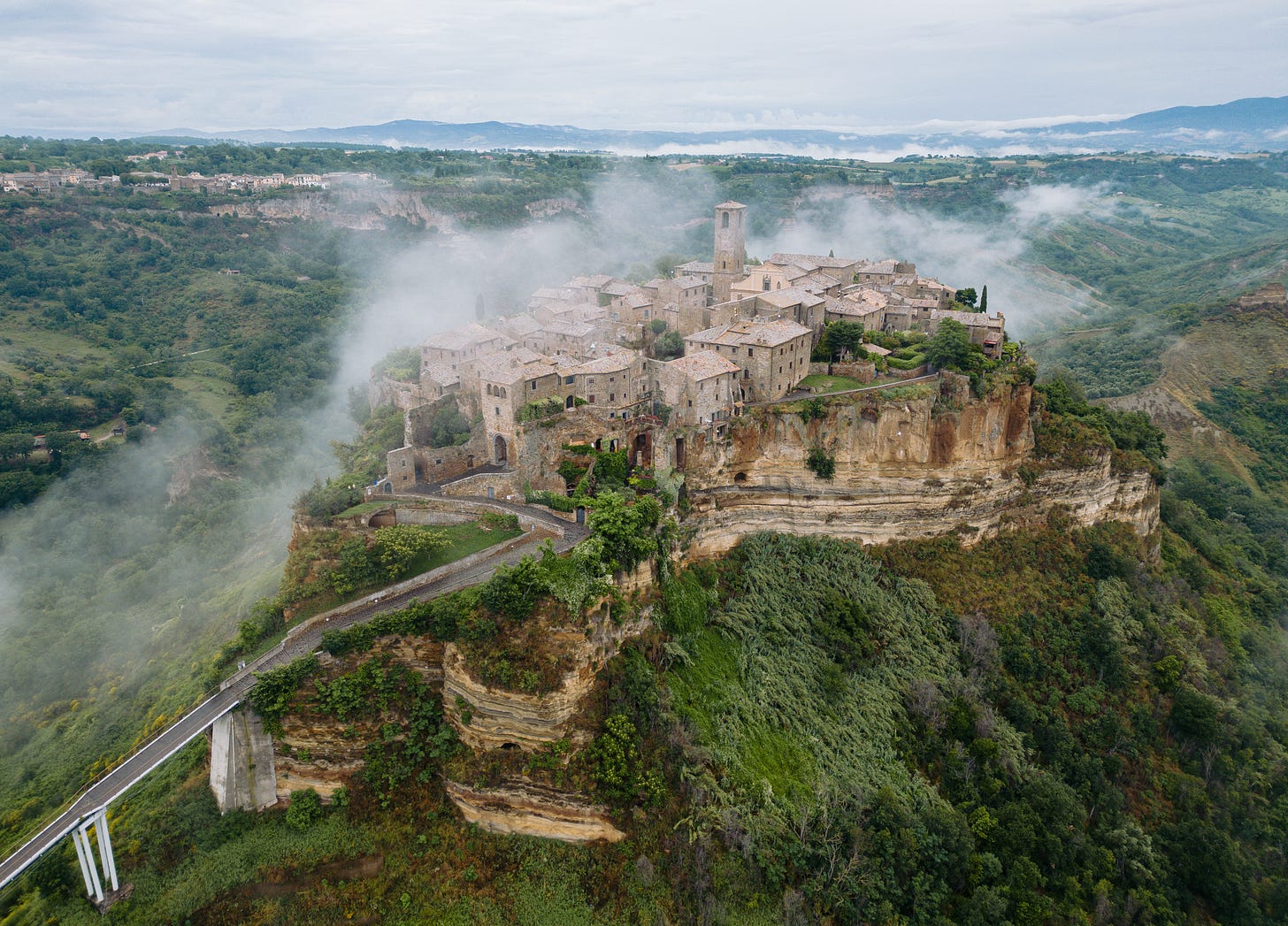In May and June of 2023, I was fortunate enough to spend a month living in an Italian hill town for a summer studio on historic preservation. In the months since returning back to New Haven, I wrote this piece as part of a publication recounting our summer travels. Unfortunately I don’t think the editors are keen on including it in its entirety, so I’d like to share how it was meant to be read.
Dante was wrong. There is another circle of hell. Lesser known, but all-the-more unbearable: this special state of anguish is reserved for the bright-eyed hopefuls of the world. Here, the damned are given a taste of paradise: a moment of escape from the oppression of the western day and momentary membership to a greater legacy.
We were robbed of a normal life, upon return; consumed by a sense of strangeness and uncertainty of how to use the hours of our lives. Day by night, by unwavering day, we sit in muted torture — wracking our minds on how to represent an experience so perfect that words truly and simply cannot hope to do it justice.
I’d rather it were all a dream. And so instead, what I have to share is not a carefully crafted, expressive, and cohesive piece that represents the magic of Civita. Rather, I have the fragmented beginnings and never-endings of what I had tried to write. All together, they might just capture a fraction of what we had:
As the Tuscan sun set over the shadowed valley of the Calanchi, the blue glow of twilight softened the hues of the purple and yellow and green until they disappeared into dusk. The warmth of the day radiated softly from rough stone walls, penetrating deep into the earth that surrounded us, and upon which we stood.
The smell of lavender – sweet and wanting – floated by open windows on that same evening breeze, ushering out the last tourists of the day. We watched their soles tread through the cobbled streets and down the spindly bridge, and the crumbling heart of the city took yet another beat.
The hand-pulled noodles that were so carefully brought from a weekend trip in Florence, paired elegantly with off-the-cuff wines that somehow never seemed to disappoint. With our lessons from Maurizio in mind, we cut through foil, twisted corkscrews deftly, and presented the labeled face of bottles with a practiced sort of ease. Glasses full, we swirled, sniffed, and savored the new flavors of the earth.
Aperol bottles were repurposed as rolling pins, turning flour and water into a focaccia bed where garden-borne leeks come to rest. The scent fills the house. Tartufo the house cat lounges on our doorstep.
Standing in the garden, I wavered between artichoke heads that trembled with the evening air and the wild herbs that bobbed in and out of the setting sun. People waved and said their greetings, but I could only stand idly and wave, as my mouth was stuffed with newfound wonders from the charcoal grill.
We sat at the dining table in Tony and Astra’s Sala Grande, flipping through handwritten recipe books and menus from didactic dinners dating back to 1991. Photos fell through the pages of the life that had filled the room – radiating a warmth far greater than the renaissance era fireplace that had attracted Astra a lifetime ago.
There were moments when we called it home.
Papate al Tony (Tony’s Potatoes)
1,5 k Potatoes. (Whole), peeled and waiting in pot of cold water
— Olive Oil
— Butter
Bring pot w/potatoes to a boil and cook ‘till potatoes are al dente
Heat oil and butter in skillet. Add potatoes and cook ‘till brown and crispy on the outside (turn as necessary)
Serve w/lamb
Isabelle discovered a new litter of kittens in the barn. Clumsy paws and bundles of fur, they clambered over one another and skirted around us. We brought morsels of meat as offerings, and they responded in kind by taunting us with another impossible future.
Despite my scattered per favores, piaceres, mi chiamos, and non parlo italianos, I still found a feeling of connection. Dancing in the square, in line with the nonnas that put us to shame – there was more than one way to speak a language.
It’s 9am. Drat – late yet again. I shower and change, stepping out over the doorstep and gingerly avoiding the furry sprawl of Tartufo (the illicit house cat). Tartufo joins us for a few paces on our lengthy hundred-meter walk to class in Palazzo Contino, the old merchant palace of the city.
The smell of mint cut through the heat just as the ruins appeared in the distance. Stone churches, barns, occupied in centuries past stood in waiting. Cows and donkeys grazed around us, feeding on thistles and wild sprigs of mint. In the distance, we imagined the tolling bell from the city square, heralding the end-of-day.
This was our moment to start a new tradition for the new students that would return to this site. As we raced up the bridge, this thought was quickly replaced with a regret of the wine and bread that had treated us far too well. Perhaps we should have been more forgetful.
Cherries rained down on us like little hailstones, and we gathered them up in our shirts under the cover of night.
The green chairs in Tony’s garden stood out against the backdrop of weathered stone. They were designed by Gae Aulenti I later learned, but all I saw was the legacy of Astra basking in the morning sun. The thin wisp of smoke emerging from a slender cigarette, clasped knowingly by a gentle hand. In her eyes was a glimpse to the vastness of life that filled up the space that we occupied, and of the future we were now beholden to.
The clouds sat low over the clay valley, rising and falling like ocean lulls that untethered us from the land and from civilization. For a brief moment, nothing else mattered.
I write in praise of imponderabilia, and of madness in meaning and rediscovery of the old ways of life. But the experience of Civita extends far beyond this. The photos, the text, and the drawings in this publication are abstractions of an incalculable experience. If what you’ve seen has left you wanting, then come and see for yourself.






